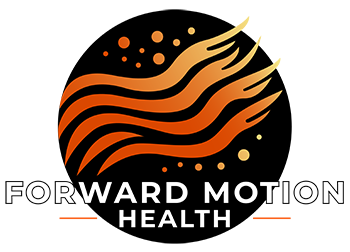Common Mental Health Disorders Treated by Dual Diagnosis Programs
Signs and Symptoms:
- Persistent feelings of sadness, hopelessness, or emptiness
- Loss of interest in activities once enjoyed
- Fatigue or low energy levels
- Difficulty concentrating or making decisions
- Changes in appetite or weight
- Sleep disturbances (insomnia or oversleeping)
- Suicidal thoughts or behaviors
Interaction with substance use disorders can worsen feelings of despair and make treatment more complex. Substance use may also be a way to self-medicate depression, leading to a cycle of dependence.
Signs and Symptoms:
- Excessive worry or fear disproportionate to the situation
- Restlessness or feeling on edge
- Muscle tension
- Rapid heartbeat or shortness of breath
- Difficulty relaxing or sleeping
- Panic attacks (intense feelings of fear, sweating, dizziness)
Individuals with anxiety may turn to substances to manage symptoms like panic or generalized anxiety, which increases the risk of developing an addiction.
Signs and Symptoms:
- Episodes of mania (elevated or irritable mood, increased energy, impulsivity)
- Episodes of depression (same symptoms as listed under depression)
- Mood swings that affect functioning in daily life
- Risky or self-destructive behaviors, especially during manic episodes
Those with bipolar disorder may use substances to stabilize extreme mood swings, which often exacerbates the disorder and complicates treatment.
Signs and Symptoms:
- Hallucinations (hearing or seeing things that aren’t there)
- Delusions (false beliefs not based in reality)
- Disorganized thinking or speech
- Difficulty functioning in relationships or work
- Lack of emotional expression or motivation
Schizophrenia combined with substance use disorder can lead to heightened psychosis, aggression, or challenges managing symptoms effectively without dual-focused care.
Signs and Symptoms:
- Intrusive thoughts or flashbacks of traumatic events
- Avoidance of reminders of the trauma
- Emotional numbness or detachment from others
- Hypervigilance or being easily startled
- Irritability, anxiety, or anger outbursts
People with PTSD might use drugs or alcohol to numb emotional pain or sleep better, which can lead to substance dependency and worsen PTSD symptoms.
Dual diagnosis programs specialize in treating the intertwined nature of mental health disorders and substance use, emphasizing personalized care and integrated treatment to address both issues simultaneously for long-term recovery.
The Importance of Integrated Dual Diagnosis Treatment
The benefits of addressing both disorders at once are crucial to long-term recovery. It ensures that treatment plans are not merely symptom-focused but address the root causes and interrelation between these health issues. Evidence shows that integrated care can significantly improve treatment outcomes, as highlighted by the Substance Abuse and Mental Health Services Administration (SAMHSA). This approach helps in breaking the cycle of addiction while fostering significant improvements in mental health.
Forward Motion Health’s Dual Diagnosis Treatment Approach
Our program also includes specialized wellness activities like yoga, meditation, and fitness, held in our wellness center, designed to promote multidimensional well-being. Integrated with these treatments is our collaboration with UFC fighter Jared Gordon, focusing on mental wellness and functional recovery.
Contact Our Montgomery Based Wellness Center
The Role of Medication Management in Dual Diagnosis
Why Choose Forward Motion Health?
Emphasizing community and support, we extend our care beyond immediate treatment. Our alumni groups and aftercare support networks are committed to helping individuals navigate life post-treatment, ensuring they remain connected and supported in their recovery journey.
Call Forward Motion to Reach Out for Help Today!
Reclaim your life with effective dual diagnosis treatment. Contact us today to learn more about how our program can help you or your loved one move towards a path of healing and wellness.
